Where the Jews Aren’t
A new book examines the brief history of an autonomous Jewish region in Russia, founded in 1929. It lasted until Stalin ordered the eradication of its Jewish identity in 1948, burning Yiddish books, banning the Yiddish language, and executing by firing squad its Yiddish writers.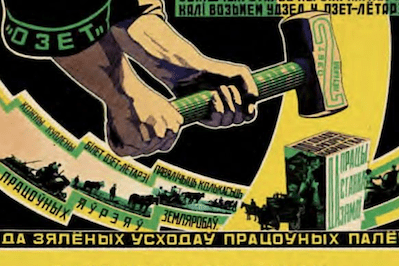 (Schocken)
(Schocken)
(Schocken)
|
To see long excerpts from “Where the Jews Aren’t” at Google Books, click here. |
“Where the Jews Aren’t: The Sad and Absurd Story of Birobidzhan, Russia’s Jewish Autonomous Region” A book by Masha Gessen
Masha Gessen’s riveting new book, “Where the Jews Aren’t: The Sad and Absurd Story of Birobidzhan, Russia’s Jewish Autonomous Region,” explores the tortured life of the long deceased Yiddish writer David Bergelson, who wrote beautiful short stories that echoed his literary heroes Chekhov and Flaubert. Bergelson always maintained a fierce love for Russia, the country of his forefathers. It was the only place he ever thought of as home, yet he and his family were repeatedly marginalized as Jews there. It was also where he was eventually charged as a traitor to the Bolshevik nationalist spirit and assassinated, at the age of 68, by firing squad in 1952, on a night that later became known as the Night of the Murdered Poets. He spent the last years of his life In Birobidzhan, near the Manchurian border, clinging to the slightest of hopes that the region would finally serve as a sanctuary for himself and his fellow Jews within Russia’s borders.
In 1929, the Soviet government set aside a sparsely populated area in the Soviet Far East for settlement by Jews called Birobidzhan. The idea of an autonomous Jewish region was championed by Jewish Communists, Yiddishists and intellectuals, who envisioned a haven of post-oppression Jewish culture. By the mid-1930s, tens of thousands of Soviet Jews, as well as about a thousand Jews from abroad, had moved there. The state-building ended quickly, however, with arrests and purges instigated by Stalin in the late 1930s. But after World War II, Birobidzhan received another influx of Jews — those dispossessed by the war. In the late 1940s a second wave of arrests and imprisonments swept through the area, traumatizing Birobidzhan’s Jews into silence and effectively shutting down most of the Jewish cultural enterprises that had been created. By 1948, the entire region was placed under a policy of Russification. Stalin, threatened by the creation of Israel, ordered that the Jewish identity of the place be eradicated. Yiddish books were burned in the town square. Yiddish was banned and Russian was the only language permitted.
Gessen’s genius lies in the pulsing questions that rattle her narrative. She forces us, by closely examining the life path of Bergelson and intertwining his story with her own memories of growing up as a Jewish girl in Russia during the 1970s, to examine questions and complicated truths Jews have grappled with for centuries — particularly Russia’s Jews. Gessen asks us to consider how they can possibly love a country that repeatedly rejects them simply for who they are. How can they forgive their neighbors for turning on them when the political currents shift? How can they cling to fantasies of acceptance when all evidence points to the contrary? How can they remain in love with a language, literature and culture that contains the seeds of their own destruction? Gessen shows us that Jewish identity is often a fluid force filled with conflicting desires. Jews have often been driven to negotiate for their place in the world. This has often involved living with compromise and self-denial, as well as a double-vision that allows one to see competing realities as somehow complementary. This is no easy task and is fraught with unseen dangers.
 Where the Jews Aren’t
Purchase in the Truthdig Bazaar
Where the Jews Aren’t
Purchase in the Truthdig Bazaar
Gessen became interested in writing about the Jews of Birobidzhan as a result of her own traumatic childhood in Moscow. She grew up the precocious daughter of shy intellectual parents. She remembers listening as a child to their endless debates about emigrating and her mother’s frustration with her father’s reticence. She would hear them volley questions until they both seemed exasperated: “When should the Jews stay put and when should the Jews run? How do we know where we will all be safe? Does departure ever signal cowardice? Can failure to leave be a betrayal of life itself? There is only one right answer to any given question at any given time. If you get it wrong, you may pay with your life.” In 1978, when her younger brother turned 3 and Gessen was 12, the family decided to leave. Gessen wanted Israel, but her parents were hoping for America.
The family made it to Boston, but Gessen would return to Moscow a little over a decade later and stay for over 20 years. She loved her life in Russia, enjoying close friendships and an interesting job as a journalist for Itogi. She remembers in particular the electricity of the early 1990s, when her fellow Russians were having serious and unusually optimistic conversations about the world they wanted to create. This was not the Russia she remembered as a young girl where she was beaten up every day in middle school for being a Jew. The times, she thought, were finally changing.
When Gessen fled Russia for Manhattan in 2013, it was not because she was Jewish. She had been living with her lesbian partner and their two adopted children, and there were rumors that the Kremlin was thinking of removing children from gay families. Gessen suspected this to be exaggeration, but she wasn’t willing to take the chance. Once in Manhattan, she felt safe, but in her book we can hear her longings for Russia. She left her home country with equal measures of fear and regret.A half century earlier, Bergelson had done the same. He was born in 1884 into a Ukrainian shtetl, only three years after Czar Alexander was assassinated by a group of revolutionaries that included one Jew. But Russia turned its rage on all the Jews. A wave of violent pogroms rose up. Bergelson’s father was a wealthy grain merchant who died when Bergelson was 14; his mother had died a few years earlier. Bergelson was his parents’ ninth child. He was on his own, helped only by his many siblings who allowed him to stay with them briefly. Bergelson spoke Russian, Ukrainian, Polish and Lithuanian, but found his writer’s voice only in Yiddish, the language of his beloved father. He wrote spare modernist prose about sad and lonely men who yearned to escape from tethered lives and their empty religious rituals. The stories from his most well-known work, “The Shadows of Berlin,” were not the kind of upbeat tales told by Sholem Aleichem, but stories steeped in Jewish melancholy. His characters often questioned the meaning of Jewish suffering. Bergelson’s portrayal of the shtetl was a harsh one; for him it was a place of repression and soul-wounding inhibition.
When Bergelson left Russia in search of a new home, he found only disappointment. He considered the American Jewish community disappointing, and spent some time in Warsaw and Lithuania where he felt displaced. He stayed for an extended period in Berlin, spending evenings in crowded cafes debating with other Yiddishists, Bundists and Zionists, but yearned to return to Russia. He finally did, unaware of the immense dangers that awaited him.
Bergelson initially believed the Bolshevik revolution would benefit the Jews, but soon saw that this was a delusion. The Jews were being attacked by the White Army for their perceived support of the Bolsheviks; they were attacked by the Ukrainian national army simply for being Jews, and they were attacked by random gangs and anarchists who saw them as pariahs and easy victims. The Bolshevik revolution prompted massive waves of pogroms and countless Jewish deaths.
But Bergelson held on to his fading hopes when he visited Birobidzhan for the first time in 1933. He fell in love with the Yiddish culture that was beginning to sprout. In his mind, this was the Jewish socialist utopia he had always dreamed about. He moved there in 1935 and was impressed that there was already a Yiddish paper, Yiddish language schools and a Yiddish writers group to which he soon belonged. He thought, much as Gessen did when she returned to Russia, that he had finally found his true home. But it proved to be illusory for both of them. He would be brutally murdered only 17 years after moving there, for imaginary crimes of betrayal against a state he still loved. Gessen would flee with fear in her heart that her family might be destroyed.
In 2009, before Gessen left Russia, she traveled to Birobidzhan to see what, if anything, remained of the Jewish world that had briefly thrived there. She found two large avenues, one named Sholem Aleichem and the other named after Lenin. The community struck her as a perverse theme park for Jewish curiosity seekers, even though almost all the Jews had disappeared. There was a Jewish synagogue, but many more Russian Orthodox churches to serve the predominantly Gentile population. There were no Jewish restaurants. A Chinese restaurant served Jewish cuisine, but used pork for most of its dishes. At her hotel restaurant, Gessen ordered gefilte fish, which was on the menu. But it is a dish traditionally served cold, and they served it to her heated.
Gessen visited the Jewish museum in Birobidzhan and found a picture of an old shtetl synagogue that is now a canning factory. A case holding Jewish objects featured a fiddle without strings. Another photo showed Bergelson and other Yiddish writers, along with a plaque commemorating the purges of the 1940s that ended with his death in 1952. Gessen realized later, with horror, that the museum made no mention of the Holocaust. “It was as if the Jews of the shtetlach from that first display case had just vanished,” she wrote, “disappeared into history for no apparent reason. It was as if there had been no reason for the new influx of Jews after the war. It was as though history, and Birobidzhan itself, had just happened.”
Both Masha Gessen and David Bergelson felt compelled to return to their Russian motherland and live their lives as secular Jews, even when there were blaring signals that Russia did not want them. Russia has never really wanted its Jews. Today, almost all of them have left for Israel, America, Canada or elsewhere. There are those who might see Bergelson’s and Gessen’s behavior as reckless and illogical, but Gessen’s extraordinary strength as a writer lies in her ability to show us the contradictory forces that drove both of them to such decisions. Her book is a series of stunning revelations about the immense complications of Jewish identity. It deserves to be read by all who remain challenged by it.
Elaine Margolin is a freelance book critic whose work has appeared in numerous newspapers and literary journals including The Washington Post, San Francisco Chronicle, Jerusalem Post and Women’s Review of Books. She is based in New York.
Your support is crucial…With an uncertain future and a new administration casting doubt on press freedoms, the danger is clear: The truth is at risk.
Now is the time to give. Your tax-deductible support allows us to dig deeper, delivering fearless investigative reporting and analysis that exposes what’s really happening — without compromise.
Stand with our courageous journalists. Donate today to protect a free press, uphold democracy and unearth untold stories.



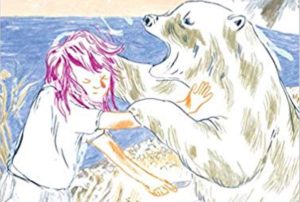
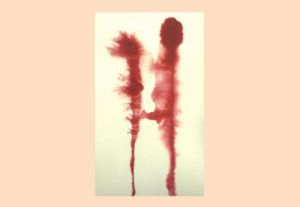
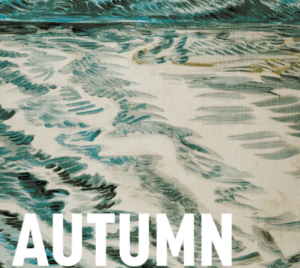
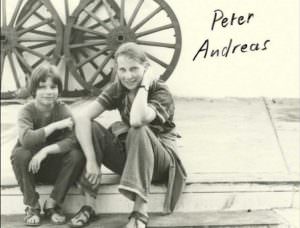


You need to be a supporter to comment.
There are currently no responses to this article.
Be the first to respond.